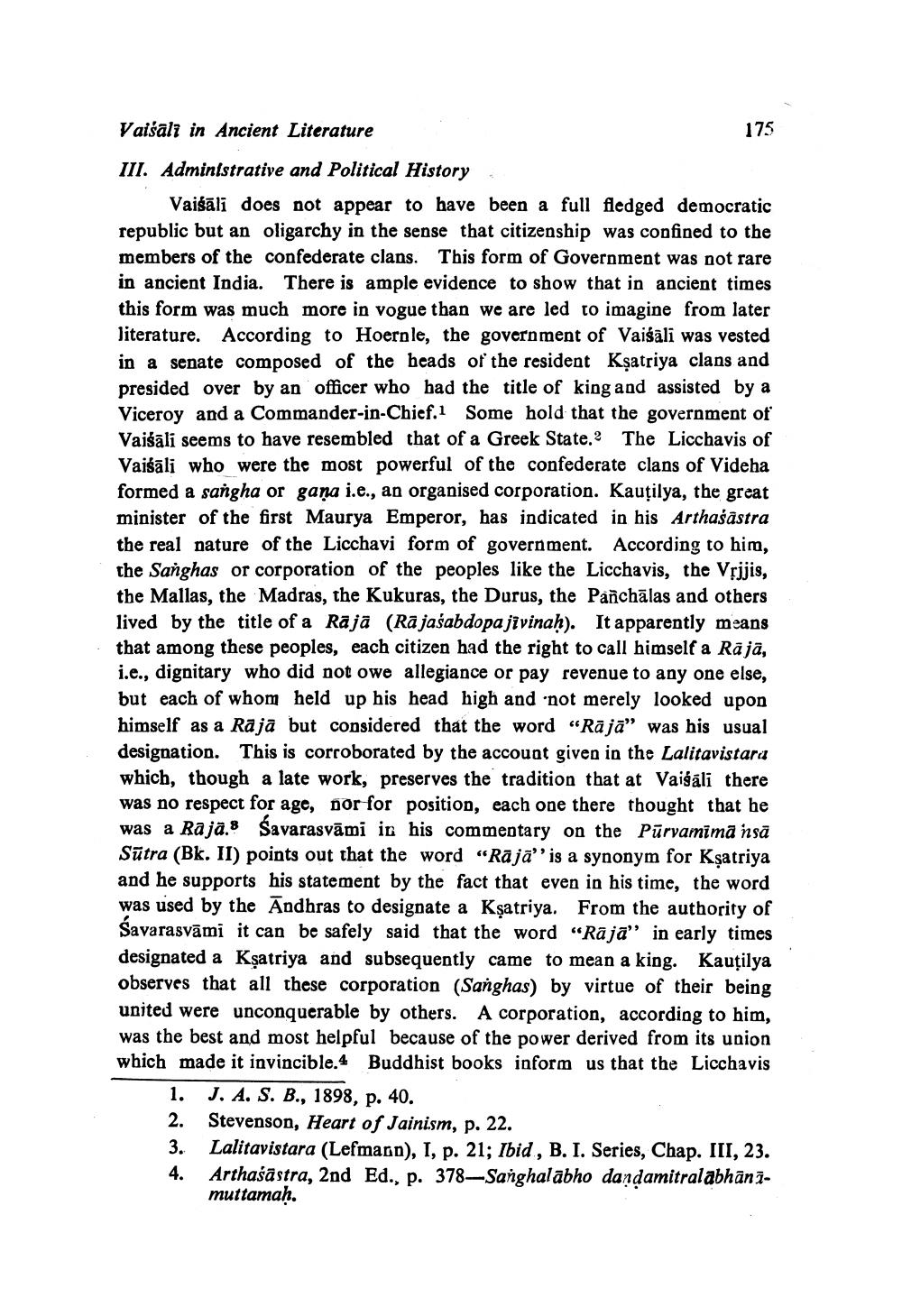________________ Vaisali in Ancient Literature 175 III. Administrative and Political History Vaigali does not appear to have been a full fledged democratic republic but an oligarchy in the sense that citizenship was confined to the members of the confederate clans. This form of Government was not rare in ancient India. There is ample evidence to show that in ancient times this form was much more in vogue than we are led to imagine from later literature. According to Hoernle, the government of Vaisali was vested in a senate composed of the heads of the resident Ksatriya clans and presided over by an officer who had the title of king and assisted by a Viceroy and a Commander-in-Chief.1 Some hold that the government of Vaisali seems to have resembled that of a Greek State. The Licchavis of Vaisali who were the most powerful of the confederate clans of Videha formed a sangha or gana i.e., an organised corporation. Kautilya, the great minister of the first Maurya Emperor, has indicated in his Arthasastra the real nature of the Licchavi form of government. According to him, the Sanghas or corporation of the peoples like the Licchavis, the Vrijis, the Mallas, the Madras, the Kukuras, the Durus, the Panchalas and others lived by the title of a Raja (Rajasabdopajivinah). It apparently means that among these peoples, each citizen had the right to call himself a Raja, i.e., dignitary who did not owe allegiance or pay revenue to any one else, but each of whom held up his head high and not merely looked upon himself as a Raja but considered that the word "Raja" was his usual designation. This is corroborated by the account given in the Lalitavistara which, though a late work, preserves the tradition that at Vaigali there was no respect for age, por for position, each one there thought that he was a Raja.8 Savarasvami in his commentary on the Purvamima nsa Sutra (Bk. II) points out that the word "Raja'' is a synonym for Ksatriya and he supports his statement by the fact that even in his time, the word was used by the Andhras to designate a Ksatriya. From the authority of Savarasvami it can be safely said that the word "Raja" in early times designated a Ksatriya and subsequently came to mean a king. Kautilya observes that all these corporation (Sanghas) by virtue of their being united were unconquerable by others. A corporation, according to him, was the best and most helpful because of the power derived from its union which made it invincible. Buddhist books inform us that the Licchavis 1. J. A. S. B., 1898, p. 40. 2. Stevenson, Heart of Jainism, p. 22. Lalitavistara (Lefmann), I, p. 21; Ibid., B. I. Series, Chap. III, 23. Arthasastra, 2nd Ed., p. 378-Sanghalabho dandamitralabhanimuttamah. bid, Bila Series che abbiamo




